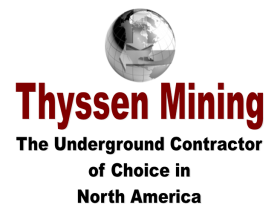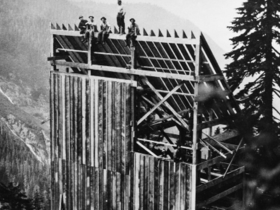MOSCOW — For sale in Russia this summer: one repossessed asset, well loved and maintained. Seller is motivated. Everything must go.
In this fire sale, the asset is Bashneft, the oil company once owned by Vladimir P. Yevtushenkov, who was prosecuted and put under house arrest. And the seller is the Russian state, in desperate need of cash.
At the right price, investors will bite. But the sale, and dozens of others taking place around the country, will reinforce Russia’s reputation in the global markets for uncertainty.
Early in his tenure, President Vladimir V. Putin pursued a policy of controlling the so-called commanding heights of the economy with a nationalization push that elbowed Russian and foreign owners out of strategic industries. Now, he is inviting investors back, as Russia faces the economic fallout from a second year of Western sanctions and low commodity prices.
The political about-face, part of the seemingly endless cycle in Russia between nationalization and privatization, adds to investors’ worries about being blindsided.
In the early post-Soviet period, privatization was viewed as a once-in-a-lifetime opportunity. But those opportunities are just happening over and over again under Mr. Putin.
Bashneft is coming full circle. Bashneft, Russia’s sixth-largest oil company, was first privatized in a series of sales in the early 2000s. Then it was renationalized in 2014 when Mr. Yevtushenkov was put under house arrest. Now, it is for sale again.
“Any buyer today should understand the risks,” Aleksandr Y. Abramov, a professor of finance at the Higher School of Economics in Moscow, said of the latest planned resale of 51 percent of Bashneft. “In a few years, this deal, too, could be unwound for one reason or another.”
Such uncertainty is a big reason investors remain wary of Russian stocks.
Consider the differing perceptions of Brazil and Russia. Both developing countries are big commodity exporters facing serious economic headwinds. But investors are willing to pay only about half as much for a Russian company as they would for a Brazilian business with the same earnings potential, according to Renaissance Capital, a Moscow investment bank.
Illustrative of Russia’s stock troubles is Gazprom, the state-controlled oil giant that was once the country’s biggest company. Gazprom’s market value was $52 billion on Tuesday, down from its peak in May 2008 of $367 billion.
Russia’s mighty oil, mining and industrial holdings looked like a good deal in the early 1990s during the transition from communism to capitalism. The government tried to create a society of stockholders out of the Soviet ashes by giving everyone vouchers representing shares in state-owned businesses. But the chaotically run effort largely flopped.
Hard up for money ahead of an election in 1996, President Boris N. Yeltsin tried a new tack of catering to rich insiders. He sold companies on the cheap to a new class of wealthy Russians.
After Mr. Putin assumed power on New Year’s Eve in 1999, he vowed to eliminate these oligarchs “as a class.” Three years later, police arrested Mikhail B. Khodorkovsky, then Russia’s richest man as owner of the Yukos oil company, bought in the sale under Mr. Yeltsin.
The primary pumping asset became Rosneft, the state oil company. Rosneft was partly privatized; the state sold 13 percent on the London Stock Exchange in 2006.
Foreign investors have been hurt, too.
In 2006, Russian regulators forced the Western oil giant Shell to sell a 25 percent share in its valuable Sakhalin Island field after threatening to shut it down for environmental violations. The threat went away after Gazprom, the state gas giant, gained control of the field.
It was Shell’s second run-in with the Russian agenda. The company’s oil assets in the country were nationalized in 1918, and Shell was only partly compensated by the Soviet government.
Bashneft’s story is perhaps one of the most tangled.
In 1993, the Russian government transferred Bashneft to the regional government of Bashkortostan, at a time when Mr. Yeltsin was trying to curry favor with local leaders. In the early 2000s, the regional government sold shares to a company owned by local elites, Ural-Invest. In the years after, Mr. Yevtushenkov steadily picked up shares through a holding company called Sistema, in deals that were certain to have been approved by the Kremlin, according to oil analysts.
Then the government changed its mind. In 2014, prosecutors asserted that the company’s original transfer — 21 years before — to a regional government had been illegal. So all subsequent transactions were voided.
Mr. Yevtushenkov was ensnared by the flurry of criminal and civil cases that followed. His shares were handed over to the state.
Mr. Yevtushenkov was finally cleared in a ruling late last year. Sistema won $950 million in a lawsuit against the previous owner, Ural-Invest. A spokesman for Sistema declined to comment.
Russia’s view of Bashneft has changed, too. Mr. Putin in April removed Bashneft from a list of so-called strategically important companies, despite substantial proven oil reserves of 2.2 billion barrels. The move clears the way for the company’s potential sale to overseas investors.
The for-sale signs are broadly up again. Along with Bashneft, the government plans to offer shares in Sovcomflot, a shipping company; Alrosa, a diamond mining company; VTB, a state bank; and Rosneft.
Investors are already sniffing around. Russian oil companies, one run by a former chief executive of Rosneft, have announced plans to bid for Bashneft. Executives and government officials in India and China have said the countries’ energy giants are potentially interested in buying shares in Rosneft.
The government needs money to cover a portion of Russia’s projected deficit this year of 2.4 trillion rubles ($36 billion), up from 1.95 trillion rubles ($31 billion) last year. And the privatization push is one of the few ways for the government to raise money.
Western sanctions over the Ukraine crisis make it difficult for Russia to hold bond sales, a common method for governments to cover budget shortfalls. While the United States Treasury has not specifically outlawed Russian bond deals, it has told American banks not to underwrite them.
At a meeting of presidential economic advisers last month, Aleksei L. Kudrin, a former minister of economy, suggested that the Kremlin spur growth by easing international tensions, as another option along with privatization. Mr. Putin responded that Russia would not “bargain with its sovereignty.”
Russia insists that the government will do better this time around with the privatization plan. Dmitry Pristanskov, head of the Federal Agency for State Property, who is overseeing the effort, said the early post-Soviet sales were partly rolled back because corruption had tainted the process.
“At the time, 25 years ago, there was no clear criteria for choosing an investor,” Mr. Pristanskov said. He said the state now carefully vetted potential buyers for criminal ties or flaws like weak compliance departments, limiting the risk that deals will fall apart later. “This is exactly what we do differently today.”










